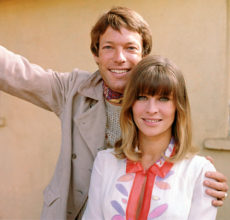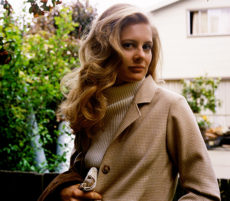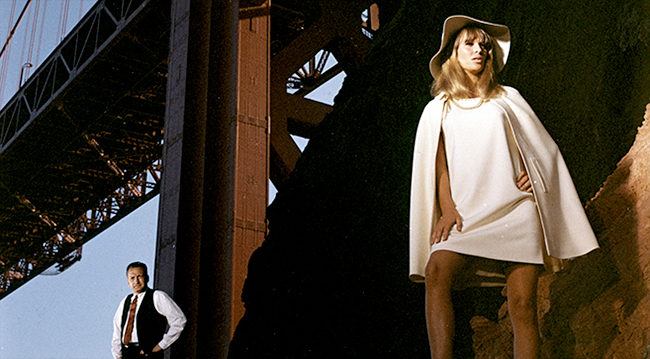BETTER START RUNNING director Brett Simon and will participate in a Q&A following the 7:30 PM show on Friday 10/12 at the Music Hall.
THE HAPPY PRINCE Writer, Director & Actor Rupert Everett will Participate in a Q&A at the Royal.
THE HAPPY PRINCE Q&A with Rupert Everett on Sunday Oct. 14 following the 4:20 PM show at the Royal.
STRANGE NATURE Q&A with Cast and Crew After the 7:10 PM Show on Thursday 9/27 at the Glendale
STRANGE NATURE actors Lisa Sheridan, David Mattey, Jonah Beres and producer Beth Meadows will participate in a Q&A following the 7:10 PM show Thursday 9/27 at the Glendale.
BISBEE ’17 Q&A After the Friday 7:10 PM Show at the Santa Monica Film Center.
BISBEE ’17 filmmaker Margaret Brown will host a Q&A with Robert Greene after the Friday 7:10 PM show at the Santa Monica Film Center.
https://www.youtube.com/watch?v=etwjMcdvxx8
PAINLESS Filmmaker and Cast Q&A’s Opening Weekend at the Music Hall
PAINLESS filmmaker Jordan Horowitz and cast Evalena Marie, Tommie Sox, David Majzlin and Anthony Ambrosino will participate in Q&A’s opening weekend 9/21 – 9/23 at Music Hall after the 7:30 PM show.
WHITE RABBIT Actress Vivian Bang in Person for a Q&A at the Glendale
WHITE RABBIT actress Vivian Bang will participate in Q&A’s after the 5:20pm and 7:30pm show on Friday, September 21 at the Glendale.
PETULIA (1968) 50th Anniversary Screening with Actors Shirley Knight and Richard Chamberlain In Person on September 20th in West LA
Laemmle Theatres and the Anniversary Classics Series present a screening of one of the groundbreaking movies from the tumultuous year of 1968, Richard Lester’s PETULIA. Set in 1960’s San Francisco, the story of a troubled love affair between a divorced surgeon and a free-spirited socialite captures some of the disruptions of a society in transition.
 The extraordinary cast includes Oscar winners George C. Scott and Julie Christie, Oscar nominee and Emmy winner Shirley Knight, Golden Globe winner Richard Chamberlain, Pippa Scott, Kathleen Widdoes, and veteran actor Joseph Cotten, one of the stars of ‘Citizen Kane.’
The extraordinary cast includes Oscar winners George C. Scott and Julie Christie, Oscar nominee and Emmy winner Shirley Knight, Golden Globe winner Richard Chamberlain, Pippa Scott, Kathleen Widdoes, and veteran actor Joseph Cotten, one of the stars of ‘Citizen Kane.’
Lester, the winner of the Career Achievement Award from the Los Angeles Film Critics Association in 2014, first came to attention as the director of comedies like ‘The Mouse on the Moon’ and the brilliantly innovative Beatles musicals, ‘A Hard Day’s Night’ and ‘Help!’
PETULIA marked his first foray into dramatic filmmaking, though it retained the comic and satiric touches of his early movies. Lester’s daring approach to non-linear storytelling had a tremendous influence on a later generation of filmmakers, including director Steven Soderbergh, who published a series of interviews with Lester.
 PETULIA, produced by Raymond Wagner, was adapted from a novel by John Haase. Lawrence B. Marcus, who later earned an Oscar nomination for his script of ‘The Stunt Man,’ wrote the screenplay. The technical team behind the movie was also first-rate.
PETULIA, produced by Raymond Wagner, was adapted from a novel by John Haase. Lawrence B. Marcus, who later earned an Oscar nomination for his script of ‘The Stunt Man,’ wrote the screenplay. The technical team behind the movie was also first-rate.
Master cinematographer Nicolas Roeg went on to become the acclaimed director of such films as ‘Don’t Look Now’ and ‘The Man Who Fell to Earth.’ Film editor Antony Gibbs worked on such films as ‘A Taste of Honey’ and Lester’s ‘The Knack,’ as well as Oscar winners ‘Tom Jones’ and ‘Fiddler on the Roof.’
Five-time Oscar winner John Barry composed the score, with some help from on-screen performances by Big Brother and the Holding Company, the Grateful Dead, and other San Francisco bands of the ’60s.
Roger Ebert reviewed the film at the time and wrote, “I am unable to find a single thing wrong with it.” Life Magazine’s Richard Schickel declared, “PETULIA is a terrific movie, at once a sad and savage comment on the ways we waste our time, our money and ourselves in upper-middle-class America.” Leonard Maltin praised the film’s “terrific acting, especially by Scott and Knight, in one of the decade’s best films.”
 Shirley Knight earned two Oscar nominations early in her career, for ‘The Dark at the Top of the Stairs’ and ‘Sweet Bird of Youth.’
Shirley Knight earned two Oscar nominations early in her career, for ‘The Dark at the Top of the Stairs’ and ‘Sweet Bird of Youth.’
She went on to star in the film version of Leroi Jones’ controversial play ‘Dutchman,’ in Francis Ford Coppola’s ‘The Rain People,’ Sidney Lumet’s film version of Mary McCarthy’s best-selling novel ‘The Group,’ and in James L. Brooks’ Oscar winner ‘As Good As It Gets.’
For television she starred in Ingmar Bergman’s script ‘The Lie’ and won an Emmy for her performance in ‘Indictment: The McMartin Trial.’
Richard Chamberlain, star of stage, screen, and television, will join the Q&A of PETULIA with actress Shirley Knight. Chamberlain was best known for the Dr. Kildare TV series when director Richard Lester decided to cast the actor against type as the abusive husband of Julie Christie in PETULIA. The role helped to alter Chamberlain’s image and enhance his reputation and his visibility.
He went on to co-star in Lester’s enormously popular ‘Three Musketeer’ movies. He played Tchaikovsky in Ken Russell’s film ‘The Music Lovers’, also co-starred in such films as ‘The Towering Inferno’ and Peter Weir’s ‘The Last Wave.’
Chamberlain became best known for his starring roles in several popular TV movies and miniseries, including ‘Centennial,’ ‘Shogun,’ ‘The Thorn Birds,’ and ‘Wallenberg: A Hero’s Story.’
PETULIA screens on Thursday, September 20th at 7pm at the Laemmle Royal in West LA. Q&A with Shirley Knight and Richard Chamberlain. Click here for tickets.
Format: DVD
Filmmakers & Lead Actress in Person for Comedic Horror Flick THE RANGER Opening Night.
THE RANGER director Jenn Wexler, producers Heather Buckley and Andrew van den Houten, and star Amanda Grace Benitez will participate in a Q&A moderated by EW’s Clark Collis after the 7:40 PM at the Music Hall, tonight, Friday, September 7.
- « Previous Page
- 1
- …
- 10
- 11
- 12
- 13
- 14
- …
- 30
- Next Page »

